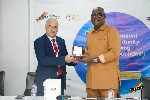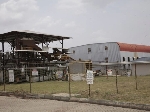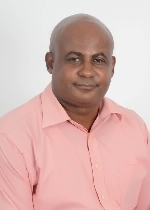Ghana generates US$9 billion in foreign exchange through ASM -Sammy Gyamfi reveals
 Sammy Gyamfi
Sammy Gyamfi
Delivering a keynote address at the 2025 Dubai Precious Metals Conference held at the Atlantis Palm Jumeirah Hotel, Mr. Gyamfi highlighted the pivotal role played by the ASM sector in Ghana’s economic rebound, the country’s new legal and regulatory framework governing the gold industry, and international collaborations needed to curb gold smuggling and strengthen global supply-chain integrity.
According to the GoldBod CEO, the ASM sector has been central to Ghana’s remarkable economic performance in 2025.
He revealed that:
Ghana recorded a US$2.1 billion trade surplus,
The cedi appreciated 35% year-to-date against the US dollar,
Inflation dropped to single digits for the first time in four years, and
Debt servicing costs declined significantly.
These gains, he emphasised, were largely driven by ASM, which for the first time in Ghana’s history outperformed the large-scale mining sector.
Mr. Gyamfi disclosed that ASM operations contributed 90 tons of gold, representing 53% of Ghana’s total gold export earnings and generating over US$9 billion in foreign exchange this year. The sector currently supports more than one million jobs, directly and indirectly.
“Gold is not just a mineral in Ghana—it is a livelihood, a path to economic mobility for millions,” he said.
While acknowledging the immense socio-economic value of ASM, Mr. Gyamfi underscored the government’s deep concern over illegal mining and its devastating environmental impact.
“No volume of gold is worth a human life,” he stressed, noting that illegal operations contaminate rivers, degrade forests, and pose long-term threats to ecological sustainability.
He reaffirmed the Mahama administration’s commitment to tackling illicit mining through improved regulation, enforcement, and sector formalisation.
Mr. Gyamfi outlined the mandate and achievements of the Ghana Gold Board, established earlier this year under the Ghana Gold Board Act (Act 1140) to streamline gold trading and promote responsible sourcing.
Under the new law:
GoldBod holds exclusive authority to grade, assay, purchase, and export ASM gold.
It exercises pre-emption rights over large-scale gold output.
It is mandated to combat gold smuggling, enforce traceability, and ensure sustainability throughout the value chain.
Key achievements since inception include strengthened regulatory oversight, licensing reforms, competitive pricing for miners, an expanded national aggregation system, and the arrest and prosecution of multiple illegal gold traders.
Mr. Gyamfi emphasised that responsible sourcing is not just an ethical priority but a legal requirement, with stiff sanctions— including license revocations and criminal prosecution— for breaches.
A major highlight of the CEO’s address was the announcement of a blockchain-based Track and Trace system expected to go live by the end of 2026.
The technology will ensure that every gram of gold purchased by the Gold Board is verifiably traced to its licensed, legal source.
Periodic compliance audits will ensure that licensed mines do not become fronts for illegal operations.
Mr. Gyamfi condemned the long-standing discrepancies between Ghana’s official export records and gold import figures declared in other countries, attributing the gap to gold smuggling.
He argued that destination countries have often ignored illicit inflows and called for a multilateral gold certification framework—similar to the UN’s Kimberley Process for diamonds—to prevent illegal gold from entering global supply chains.
“Gold smuggling fuels money laundering, terrorism financing, and criminal networks.
We must confront this threat now,” he said.
Ghana, he added, stands ready to partner with the UAE, DMCC, OECD, LBMA, and other stakeholders to tackle the menace.
Mr. Gyamfi also announced plans to establish an ISO-certified Assay Laboratory in Ghana to phase out outdated assay practices such as water-density testing, which he said have led to widespread fraud in the ASM ecosystem.
He outlined additional initiatives, including:
Support for the Responsible Cooperative Mining and Skills Development Programme (rCOMSDEP),
Investment in geological investigations in partnership with the Ghana Geological Survey Authority,
Capacity-building programmes to modernise ASM operations and promote mercury-free processing technologies,
Strategic capital mobilisation under the Mining Support Programme to scale sustainable ASM production.
The CEO concluded with a call for international cooperation to support responsible ASM reform in developing nations.
“ASM is not merely about mining gold—it is about uplifting communities, creating sustainable livelihoods, and safeguarding our environment,” he said.
He urged global actors to help “forge a golden path” that combines prosperity with environmental stewardship for generations to come.
The 2025 Dubai Precious Metals Conference brought together government officials, industry leaders, regulators, and investors from across the world to discuss opportunities and challenges in the global precious metals market.
Source: Classfmonline.com/Cecil Mensah
Trending Business

Mohamed Benjelloun- Consultant, Moroccan Investment and Export Development Agency and Simon Madjie (R)
17:16
TAGG attributes high prices of goods on the market to Customs taskforce bribery
14:31
Ghana generates US$9 billion in foreign exchange through ASM -Sammy Gyamfi reveals
12:52
S/R: PBC shea butter factory back up, contracts secured to supply Netherlands, others
12:16
We never valued Springfield’s asset at US$700 million- GNPC, Explorco reject allegations
06:37
Ghana welcomes rescission of Trump's 15% tariffs on cocoa, other agric products, and forecasts $60m in revenue boost
14:06
GUTA women's wing embarks on National Monitoring Tour to support traders
16:57
GTBank opens 38th branch in Ho, assures quality customer care and commitment to Volta Region’s economic growth
19:36
Blue Gold responds to Supreme Court ruling on Bogoso-Prestea mine case
08:22
President Mahama Appoints Kwame Griffiths as Deputy MD of Cocoa Processing Company
08:09




